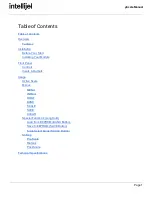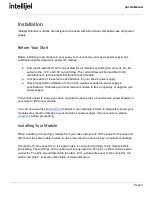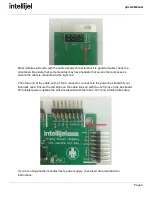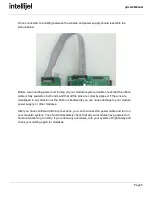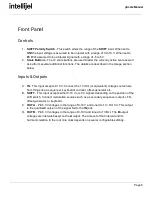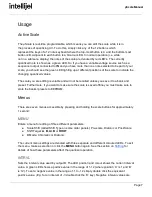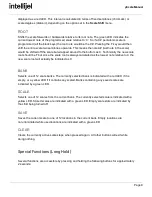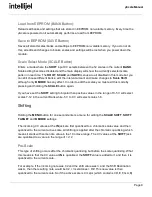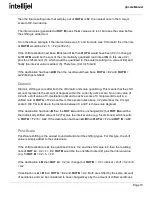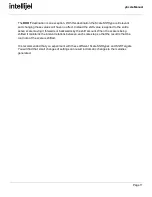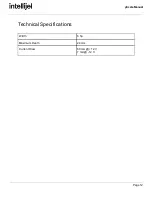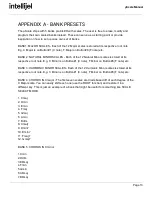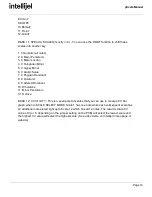
µScale Manual
then the final resulting note that will play out of
OUT A
is E2, the nearest note in the C major
scale to D#, rounded up.
The interval value (generated at
OUT B
) uses the
A
value as its root, but uses the value before
the shifting is added to it.
So in the above example if the interval value was ‘5’ and its mode was ‘Chromatic’ then the note
at
OUT B
would be C2 + 5 = F2 (not E2+5).
If the shift destination had been
B
instead of
A
, then
OUT A
would have been C2 (no change),
but
OUT B
would be the sum of the chromatically quantized root note at
IN
(in this case C2),
plus the shift amount (3), which would be quantized to the scale (resulting in a value of E2),and
finally the interval value is added. (5). Therefore, (C2+3)+5=G2#.
If the destination had been
A+B
then the result would have been
OUT A
= E2 and
OUT B
=
G2# (both got shifted).
Diatonic
Diatonic shifting occurs after both the chromatic and scale quantizing. This means that the shift
amount represents the amount of degrees within the currently active scale. So a note value of
C2 with a shift value of 3, destination of
A
and an active scale of C major would result in a
shifted note at
OUT A
of F2 since this is three scale notes above C2 (remember the C major
scale C,D,E,F,G,A,B where the distance between C and F is three scale degrees).
If the destination had been
B
then the
OUT A
would be unchanged (C2) but
OUT B
would be
the diatonically shifted value of C2 (F2) plus the interval value (e.g. 5 semitones) which results
in
OUT B
= F2+5 = A#2. If the destination had been
A+B
then
OUT A
= F2 and
OUT B
= A#2.
Post-Scale
Post-Scale shifting is the easiest to understand of all the shifting types. For this type, the shift
value is simply added to the scaled note.
If the shift destination is
A
, the quantized note is C2, and the shift value is 4 then the resulting
note of
OUT A
= C2 + 4 = E2.
OUT B
would be the unshifted note (C2) plus the interval value
(e.g. 5)
OUT B
= C2 + 5 = F2.
If the destination is
B
then
OUT A
= C2 (no change) but
OUT B
= C2 + in shift = C2+4+5
= A2.
If destination is
A + B
then
OUT A
= E2 and
OUT B
= A2. Both are shifted by the same amount
of semitones and can be considered to have changed keys by the amount of shifted semitones.
Page 10


